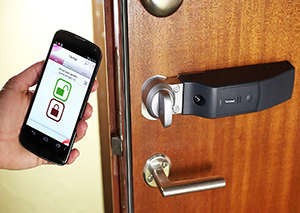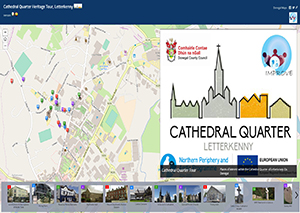Outputs and Results
The project regions intend to bring about a step-change in their capacity to produce technology-driven public services. In doing so, IMPROVE will focus on achieving the following complementary main results to bring about this improvement and contribute to the NPA Programme’s results:
1. Achieve a step-change improvement in the innovation potential of the IMPROVE project regions by bringing about the establishment of transboundary living lab.
2. Capability of the project regions to develop technology-driven services in the field of healthcare and spatial planning.
3. Improved capacity of three universities/research Centres in the NPA to provide innovation services, in the field of technology-driven public services development knowledge throughout the programme area.
Public services co-production methodology
A novel methodology to guide regions in the process of co-producing new services with the community in a living lab environment helping them to:
• Establish the innovative living lab ecosystem formed by all the relevant stakeholders
• Effectively carry out the needed adaptation and organizational change in each stakeholder
• Provide the public services providers (civil servants, community managers, volunteers, social enterprises, etc) with the necessary tools and skills to act as local champions leading the process of co-producing the new services
• Deliver user-centred, inclusive, responsive and transparent services
• Engage and involve the community
You can download the IMPROVE methodology by clicking here.
Transboundary Living Lab Network
A transboundary or transnational living lab service, containing a node in each partner region, focused on the development of technology-driven public services for peripheral and sparsely populated areas of the NPA.
The service will be capable of integrating other regions and stakeholders into the network.
Interested in joining us? We invite you to contact us and send us your interests to improvenpa{at}ernact.eu .
eHealth/ telecare services
These services will open new ways of providing care and health services in peripheral and scarcely populated areas by making use of ICT technologies. Three pilot services are planned:
- eCare/eHealth Communication service (North Karelia) : a service to connect citizens, public sector actors, companies and associations making the process more inclusive, accessible and interactive moving from the current top-down approach to a new way of co-produce and organize the services.
Read more here.
- Safer and secure telecare services (Vasternorrland): a service oriented to making use of new ICT technologies (i.e. cameras, sensors, etc) to help carers feel safer and secure when supporting the growing number of elderly and disabled people, especially during the night or under bad weather conditions.
Read more here.
- eHealth Messaging services (Sogn og Fjordan): a service that uses e-messaging to effectively communicate between the patient and different service providers.
Read more here.
Spatial planning services
Local communities use these online services to participate more fully in the long-term planning and development of their area and engage on issues of public debate, e.g., the balance to be achieved between sustainable energy and protecting the natural environment versus the case for large scale mining projects.
These services will strengthen participatory democracy giving the citizens a space where they can suggest, debate and even vote on matters in the public interest and large scale development projects.
It can be used in all stages of the long term planning and land use process at local and regional level and can encourage and facilitate contributions and observations on planning/development issues (e.g., building permits, parking and environmental impact). Three implementations are planned:
- Spatial Planning Service and Community Participation (Donegal): this is a step away from the traditional “Open for Public Consultation” time period, and into the realm of ongoing public contribution of local planning issues and the constant gathering of those issues in an online Spatial GIS application.
Read more here.
- eParticipation Spatial Planning Service (Borgarbyggð): This service will be designed to promote citizen participation and collaborative problem solving in municipality governance. It will be based on a website that allows citizens to submit policy proposals to the municipal government. These ideas would be publicly accessible, and can be debated by other participants and revised.
Read more here.
- ePlanning Service (Derry and Strabane): A service to enhance the level and manner of public engagement at key stages of the Local Development Plan process in a format that will help to ensure that such engagement and feedback is actively utilized to steer and shape the progress of the plan preparation.
Read more here.




